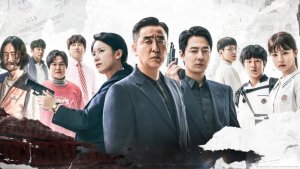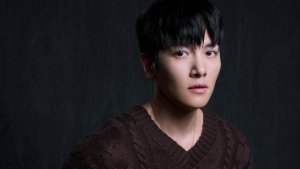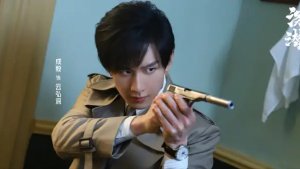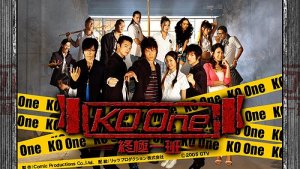 "Zhong Ji Yi Ban" In A Nutshell
"Zhong Ji Yi Ban" In A Nutshell
5 Things Kdramas Have Taught You Guys: Parody Version

Oh, my lovely Mdl'ers, I've been on quite a long hiatus. Did you guys miss me? let me know in the comments below ;)
Since most of you guys had a lot of life lessons to put out, I decided after months of thinking and procrastination to put this article out as a sequel to my article: 5 Things Kdramas Have Taught Me. I decided to make a parody version because most of these 'life lessons', as I would call it were surprising and the responses were very hysterical and out-of-the-box. It really goes to show how keen and sharp-eyed you Mdl' ers are. And I just wanted to respond and add on to them. Also, since there were so many, I tried my best to make the ranking as unbiased as I possibly could so the ranking is based on how many likes that certain lesson or comment had in total. Shout out to all the commentators.
Glossary: PB- Played By
Let's get to it!
(WARNING: MINOR SPOILERS)
5. You Can Solve Anything With Surgery


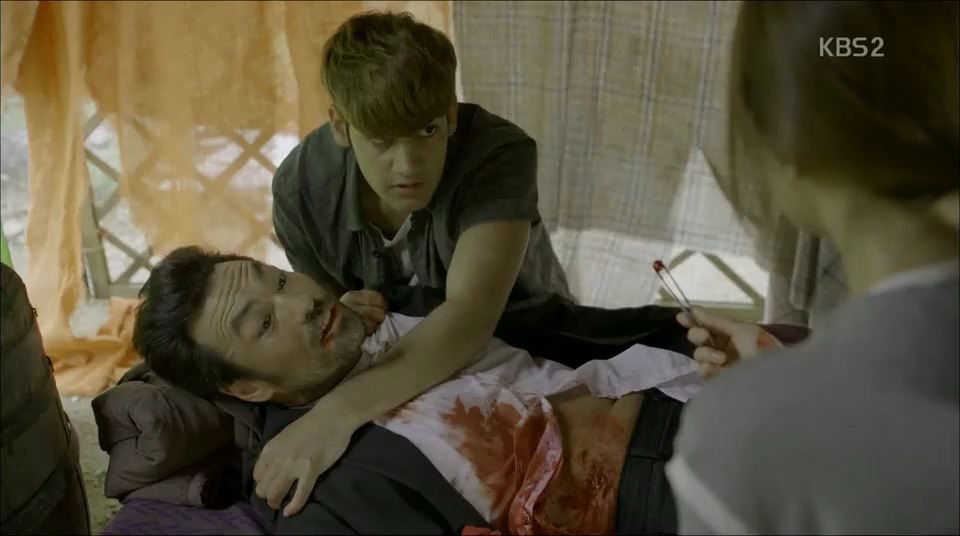
As a huge fan of Medical dramas, I have to say I agree with this because the majority of the diseases that are seen in Korean dramas are either fatal, life-threatening or nearly incurable. Yet, doctors portray surgery as a miracle procedure no matter what disease it is. Let's take Birth of a Beauty, for example. Although this may not be a Medical drama nor the best example, the way surgery miraculously changed the female leads life is still something I ponder on till this day.

We all know the tale of the ugly duckling turning into a swan and that pretty much sums up the plot of this drama. This "ugly duckling" was stigmatized by society because of her appearance and therefore, at her lowest point in life, she decides that modifying her body is the best option for her "revenge". From hair implants to collagen implants in her vocal cords and even liposuction. In the first half Birth of Beauty, you can see the female lead living a life of luxury or viewed as a rebirth; Birth of beauty that is, which would not have been possibly attained without surgery. I am no doctor, but upon research and logistics from Under the Knife: Study Shows Rising Death Rates from General Anesthesia by World Crunch state that:
“An anaesthesia and operation mean stress for the body,” says Gottschalk. For a patient to die on the operating table is rare — but for patients with serious problems in their medical history, post-traumatic stress after a long operation can under some circumstances lead to death.”
We can all conclude that the drastic surgery the female lead had gotten could not have come out without any risks or after-effects unless a miracle happened; which one didn't. The female lead apparently suffered from anaesthesia-induced delirium, which was the only side effect noticeable. This is strange because the female lead had just gotten into a serious car accident. Upon going under the knife alongside getting all those implants and altercations done to her body, I can't possibly see how she was able to live like a regular person. It was as if surgery had just magically solved all her life problems, without drastic after-effects besides, of course, the delirium.
4. I should forgive anyone who tried to inflict harm on me and destroyed my life

K-dramas have shown me all sorts of dynamic tropes and clichés. From catfights full of hair-pulling between female characters to kimchi slaps, kimbap slaps, doenjang slaps, e.t.c. to having noodles, eggs and floor poured on your hair. Vandalism of your property, harassment and even near-death experiences, you name it all. 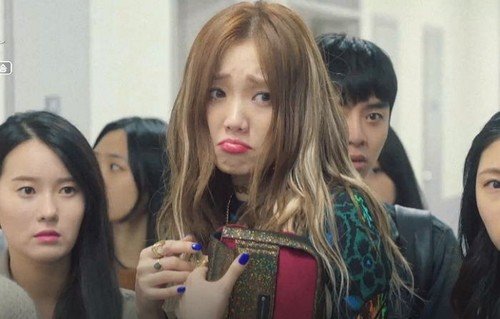 Now, the epitome of crazy I’ve seen so far in Korean dramas would have to be our notorious Baek In Ha (PB Lee Sung Kyung) in Cheese In The Trap.
Now, the epitome of crazy I’ve seen so far in Korean dramas would have to be our notorious Baek In Ha (PB Lee Sung Kyung) in Cheese In The Trap. 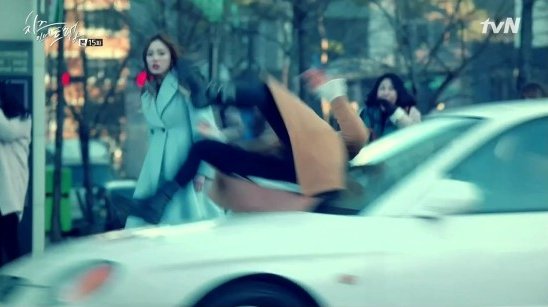 The psychology behind her character is very interesting, but I won’t talk much on it since my memory is very obscure. Still, I will say the moment where her craziness really comes into view is when she almost causes the female lead to losing her life. In-ha should have been put in jail for the attempt of murder, but instead was put in a psych ward. The female lead, Hong Seol(PB Kim Go Eun), didn't even end up blaming In Ha and her brother, In Ho, for the accident. Some might call me cruel, but I would have wanted her to take full responsibility for almost causing my death.
The psychology behind her character is very interesting, but I won’t talk much on it since my memory is very obscure. Still, I will say the moment where her craziness really comes into view is when she almost causes the female lead to losing her life. In-ha should have been put in jail for the attempt of murder, but instead was put in a psych ward. The female lead, Hong Seol(PB Kim Go Eun), didn't even end up blaming In Ha and her brother, In Ho, for the accident. Some might call me cruel, but I would have wanted her to take full responsibility for almost causing my death.

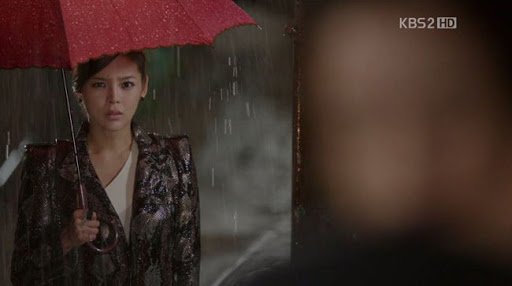
"To me, Ma Roo is a home that always has the light on with a warm fire burning."
Han Jae Hee (PB Park Shi Yeon) from Innocent Man has to be the most toxic female lead I have ever seen in the world of Korean dramas. She ruined the male lead, Ma Roo's (PB Song Joong Ki), life. Starting from his career having him kicked out from medical school, he went to jail for her and that not being bad enough, when he got out she had already gotten married to another man. Ma Roo gave up so much for her, but of course, Han Jae Hee saw his kindness, love and affection as a gimmick to her personal propaganda.
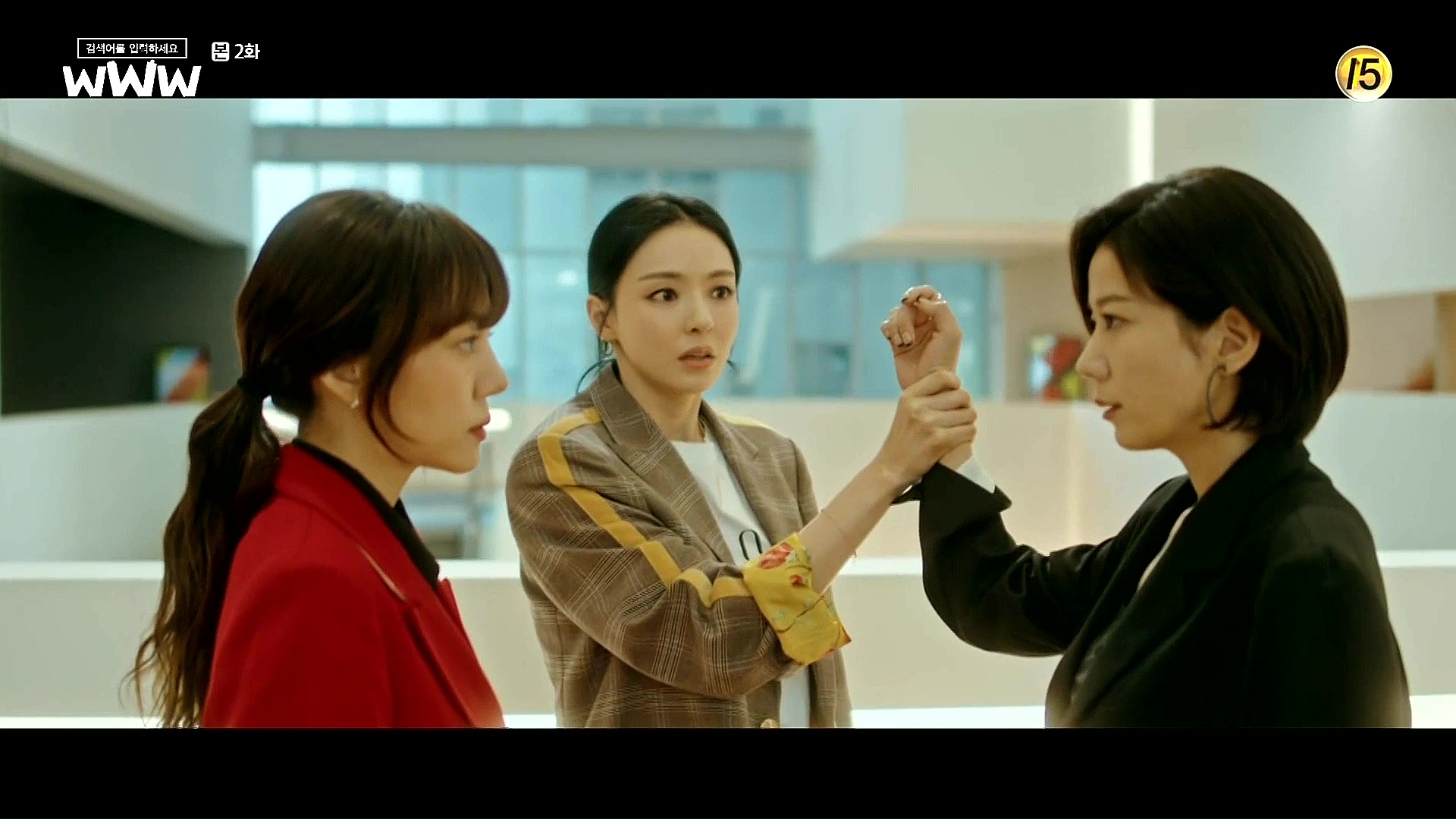


Let's not forget the infamous Song Ga Gyeong ( PB Jeon Hye-Jin) in Search: WWW. Ga Gyeong's character gave the impression of one who is emotionally blank and comparably on the antagonist side as she was deemed to be Bae Ta Mi's (PB Im Soo Jung) rival throughout a certain period of the drama. Song Ga Gyeong went as far as harassing Ta Mi to even causing her to lose her job.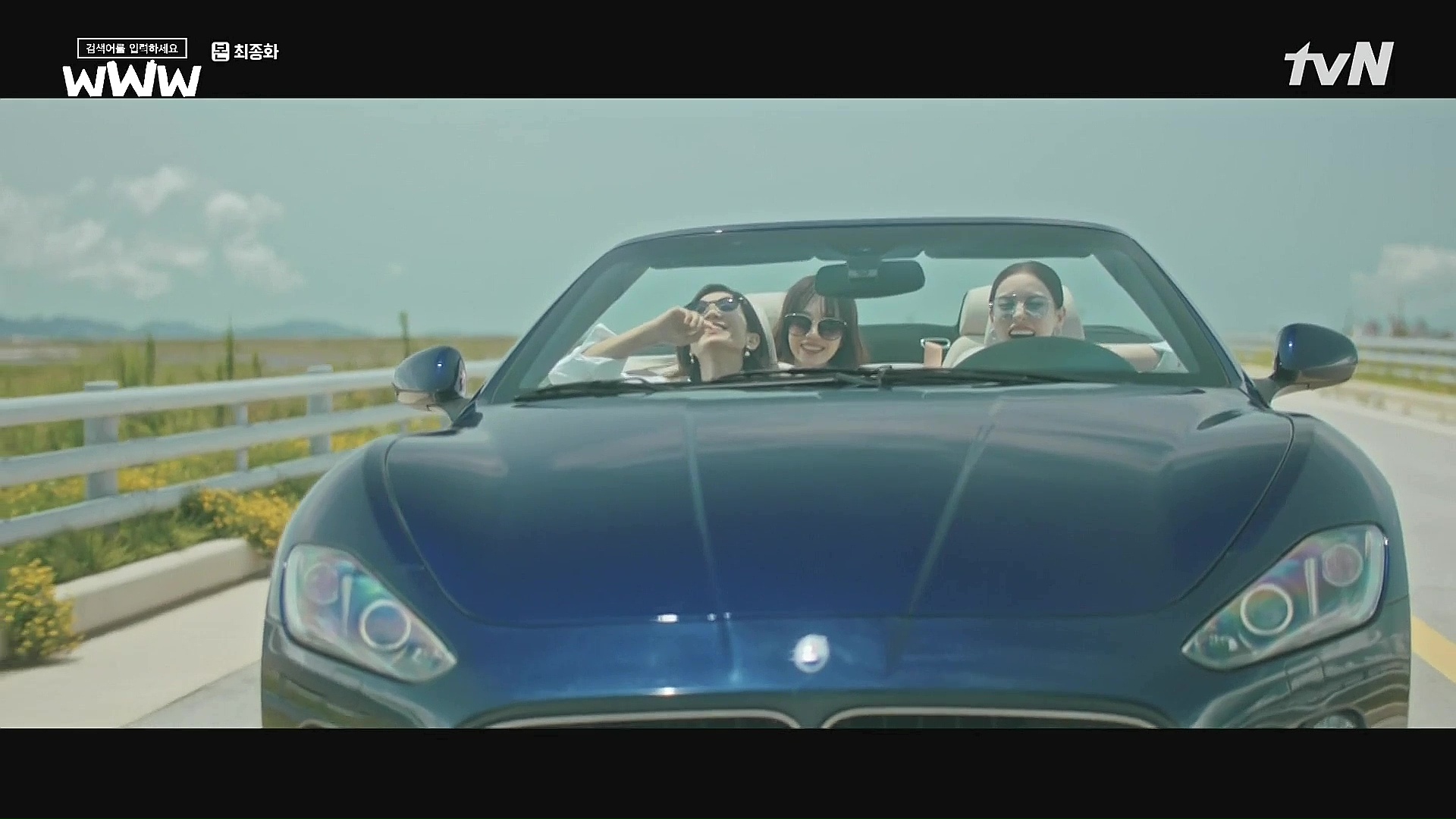
I find Song Ga Gyeong's character to be rather interesting. Although her family was really controlling in many of her decisions, choices and even her marriage, like most typical K-drama aristocratic families tend to be. Ga Gyeong never failed to amuse us. which makes most of her actions towards Ta Mi arguable understandable.
3. Eccentric characters are okay as long as they're a rich Chaebol
(Eccentric but, in certain circumstances, worse, seemingly stated by the commentator below)



Another interesting topic to speak on is something I always see in Western movies: the topic of stalkers. Just as Western filmmakers have their own way of displaying stalkers (which I am not going to talk on), K-dramas have their own way of displaying stalkers as well. And in its most common placed form, a majority of them are with the characteristics as listed: peculiar facial expressions, eccentric personalities, unarguable rich and handsome. A portion of the reason why their characters are normalized.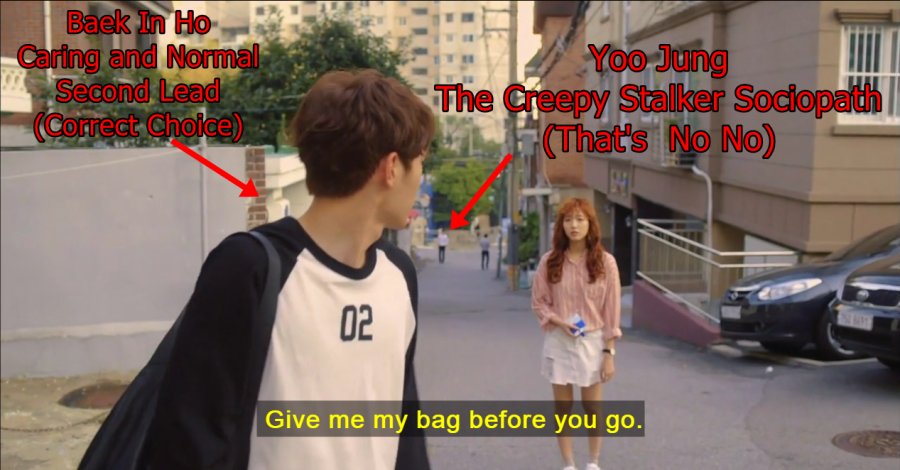
Personally, in my opinion, I feel as though K-dramas romanticize stalkers and eccentric male characters presumably because they are the typical ideal type of many. Handsome, rich and charming. Just take Yoo Jung (PB Park Hae Jin) from Cheese In The Trap. To some, he might have seemed like the typical antisocial young man from an aristocratic background, but, in my opinion, the guy was a sociopath. He could easily manipulate people for his personal propaganda, he was very callous to those who were in his way and also very sly. But as the victim's guilt goes, I shipped him with the female lead mainly because of his looks.
2. Look Out For The White Truck Of Death/Doom


Upon seeing this comment, I just had to take one minute and laugh until my throat started hurting. "The truck of Death" or "The truck of Doom", as they call it, has to be one of my pet peeves when it comes to K-dramas and clichés. Whenever The truck of Death/Doom is used in K-dramas, it is often used for a sudden plot change where a character goes either into a coma, dies or luckily, survives with an enormous amount of blood flowing from his/her body, which later leads to most likely a terminal disease or chronic illness, usually amnesia.
I always get a sudden uneasy feeling in my heart whenever the protagonist is hit by this "Truck of Death" and when it turns out to be a Hit-And-Run the plot suddenly gets all over the place in almost every single drama that uses The truck of Death to drive the plot. In general, this cliché has really affected me. Every time I would see a white van, I would always be paranoid and, in some cases, run for my life. What I could never understand was:
A. WHY PEOPLE NEVER LOOKED LEFT AND RIGHT BEFORE CROSSING 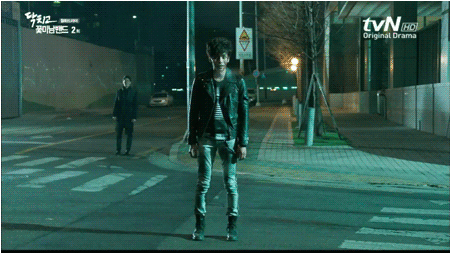 | B. WHY TRUCKS DRIVERS NEVER NOTICED PEDESTRIANS 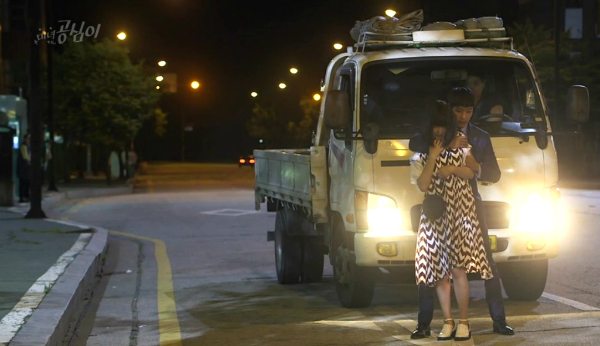 |
1. I Have To Be Poor/Unpopular For A Rich Guy To Fall For Me

I honestly feel that the "Rich Man, Poor Woman" cliché is the most common plot device that can be found in K-dramas. It is really profound in the sense that it was the power drive for the Hallyu wave dramas around the 2005 to 2016 era. Dramas such as Goong (2006), Boys Over Flowers (2009), Secret Garden (2010), The Heirs (2013), Cinderella and the Four Knights (2016) and so on. This plot device sort of follows an "opposites attract" stimulus where at first, the main protagonists cannot stand each other, but gradually start to build up an attraction for each other, which is one of the reasons why this plot device is very interesting - it brings together two people that juxtapose each other.
Lately, the K-drama industry has begun to see a diverse ratio of genres and plot simulators/devices that create dramas that vary creatively, which in total is a very good thing.
AUTHOR'S NOTETHANKS FOR READING THIS ARTICLE. PLEASE TAKE THE INITIATIVE TO PUT DOWN SOME FEEDBACK, TO KNOW WHAT YOU GUYS LIKED BEST AND WHAT I COULD WORK ON. IT WOULD MEAN A LOT TO ME.

BYE! SEE YOU NEXT TIME!






